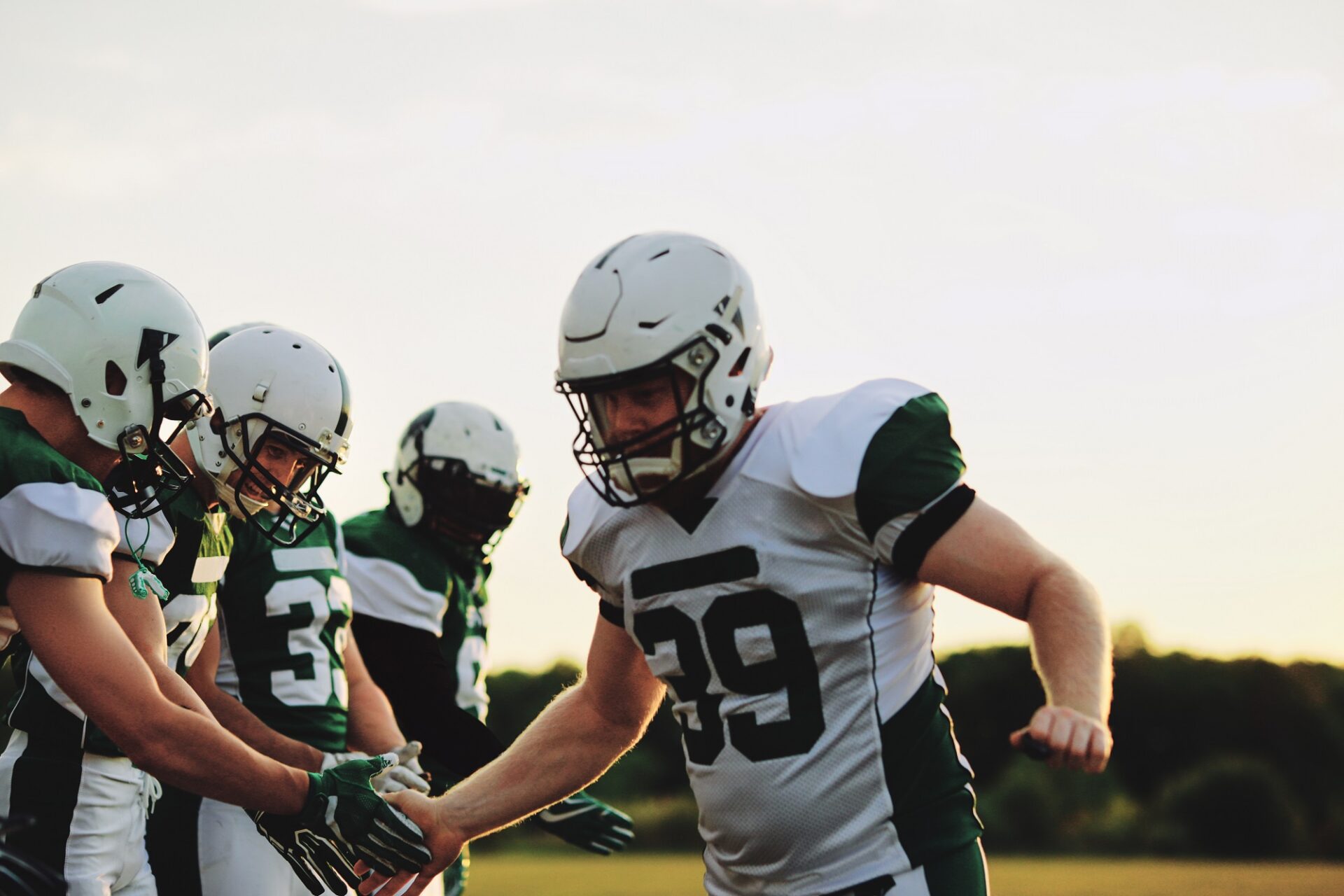Football is a high-impact sport that puts athletes at risk for various injuries, especially to the shoulder. Football shoulder injuries can range from the common rotator cuff strains to more severe conditions such as dislocations and torn ligaments. When faced with these injuries, seeking comprehensive orthopedic care from a specialized sports medicine doctor is crucial. This blog will provide an in-depth look at the different types of football shoulder injuries and the comprehensive orthopedic care options available to treat them. Whether you are an athlete, coach, or parent, understanding the importance of proper orthopedic care in football is essential for athletes’ long-term health and performance.

Common Football Shoulder Injuries
Due to the physical nature of the sport, shoulder injuries are quite common in football. Three of the most common injuries among football players are:
- Rotator Cuff Tears: essential for stabilizing the shoulder joint, the rotator cuff is susceptible to tears due to repetitive overhead motions or traumatic impacts. Symptoms of rotator cuff tears include shoulder pain, weakness, and limited range of motion, affecting your performance on the field.
- Shoulder Dislocations/Subluxations: These occur when the upper arm bone pops out of the shoulder socket (dislocation) or partially comes out (subluxation). Tackles or falls often lead to these injuries, causing pain, instability, and restricted movement.
- Shoulder Separations (Acromioclavicular Joint Injuries): Direct blows to the shoulder can cause injury to the ligaments connecting the collarbone and shoulder blade, resulting in pain, swelling, and deformity at the top of the shoulder.
It is crucial for football players to understand the risks and potential for shoulder injuries in the sport. With proper prevention and management, football players can reduce the impact of shoulder injuries and continue to perform at their best.
How Football Players Can Prevent Shoulder Injuries
Preventing shoulder injuries is essential for football players to ensure their long-term careers and overall well-being. Football players can significantly reduce their risk of shoulder injuries by following certain preventive measures:
- Strengthening Exercises: Football players should focus on strengthening the muscles surrounding the shoulder joint, including the rotator cuff muscles. This can be achieved through regular strength training exercises such as shoulder presses, lateral raises, and external rotations.
- Proper Technique: Coaches should emphasize proper tackling and blocking techniques to minimize the risk of shoulder injuries. Players should be taught to reduce the chances of a direct impact on the shoulder joint.
- Warm-up and Stretching: Prior to any physical activity, football players should engage in a thorough warm-up routine. This should include dynamic stretching exercises that target the shoulder joint, such as arm circles and shoulder rolls. Stretching helps improve flexibility and range of motion, reducing the likelihood of strains or tears.
- Wear Protective Gear: In addition to wearing helmets, football players should wear appropriate protective gear to safeguard their shoulders. This includes well-fitted shoulder pads that provide adequate padding and support to the joint. Players may opt for additional protection, such as shoulder harnesses or braces, especially if they have a history of shoulder injuries.
- Rest and Recovery: It is crucial for football players to prioritize rest and recovery between training sessions and games. Overuse of muscles and joints can lead to fatigue, increasing the chances of shoulder injuries. Players should follow a structured training program that allows for adequate rest periods and includes active recovery exercises.
- Regular Medical Check-Ups: Football players should undergo regular medical check-ups to identify any underlying issues or weaknesses that may increase their susceptibility to shoulder injuries. This allows for early intervention and appropriate treatment, reducing the risk of further damage.
It is important to remember that prevention is always better than treatment when it comes to sports-related injuries; taking proactive steps will contribute to football players’ long-term success and health.
Football Shoulder Injury Treatment Options at AOSMI

At AOSMI, we offer comprehensive care solutions for the full range of shoulder injuries – including orthopedics, pain management, and physical therapy – ensuring you receive the most effective treatment tailored to your needs.
Shoulder Surgery
Our experienced orthopedic surgeons offer advanced surgical procedures tailored to your sports-related injury. Our surgeons specialize in arthroscopic rotator cuff repair – utilizing minimally invasive techniques to repair torn rotator cuff tendons, promoting faster recovery and minimal scarring. In the cases of recurrent dislocations or severe instability, our surgeons offer shoulder stabilization surgery to restore shoulder stability and function.
Interventional Pain Management
Our pain management specialists utilize comprehensive treatments to alleviate shoulder pain discomfort and facilitate rehabilitation. Standard pain treatment options are corticosteroid injections, platelet-rich plasma therapy, and nerve blocks.
Orthopedic Physical Therapy
Our dedicated physical therapists design personalized rehabilitation programs to optimize your shoulder function and prevent future injuries through strengthening, range of motion, and neuromuscular re-education exercises.
Visit The Trusted Sports Medicine Doctors at AOSMI
As a football player, your shoulders are vital to your success on the field. Don’t let shoulder injuries sideline your career – trust the board-certified sports medicine doctors at AOSMI to get you back on the field. With locations throughout New Jersey, AOSMI offers a comprehensive approach to shoulder injury treatment, combining advanced surgical techniques, interventional pain management, and expert physical therapy. Take the first step towards recovery and request an appointment with us today.







